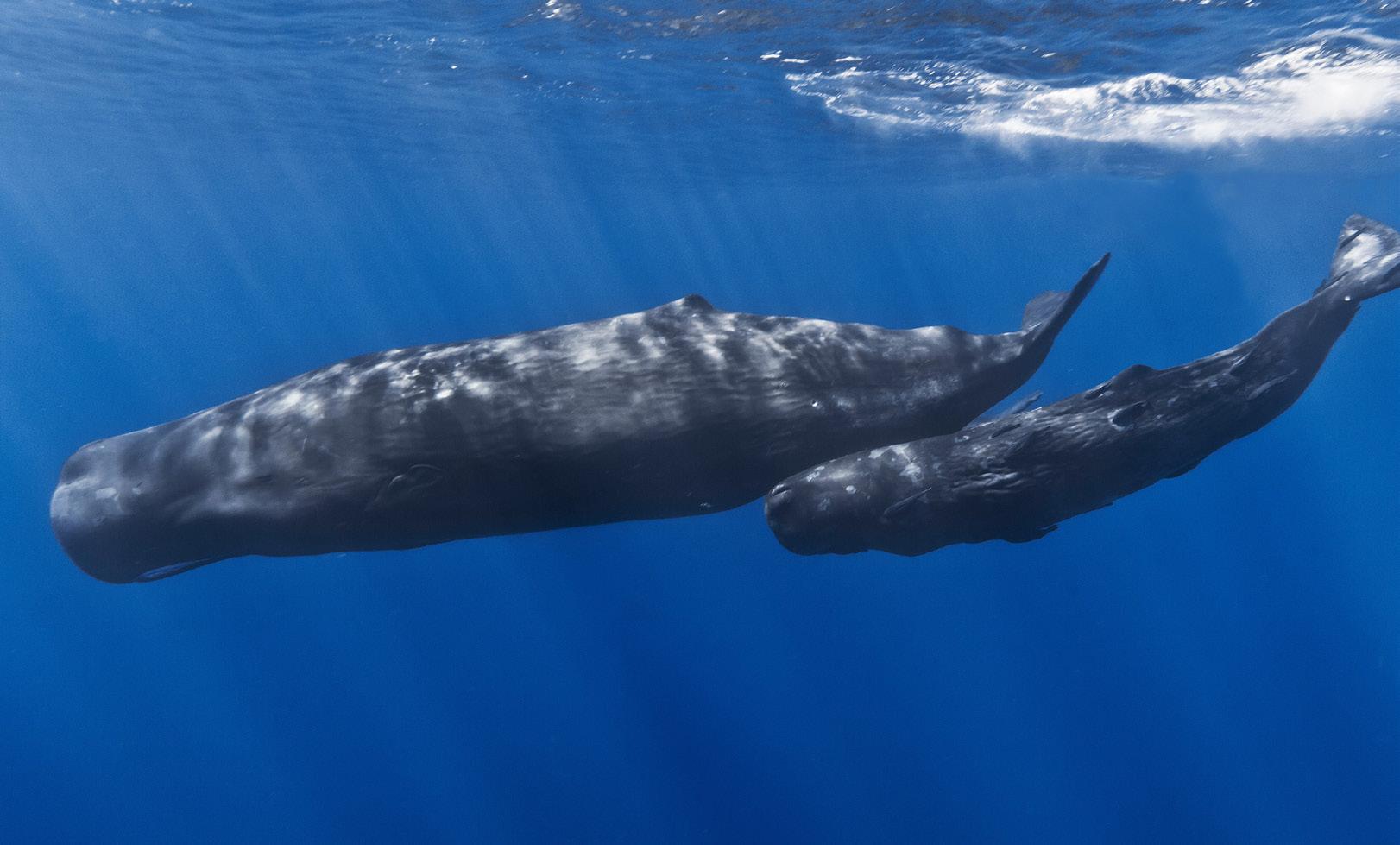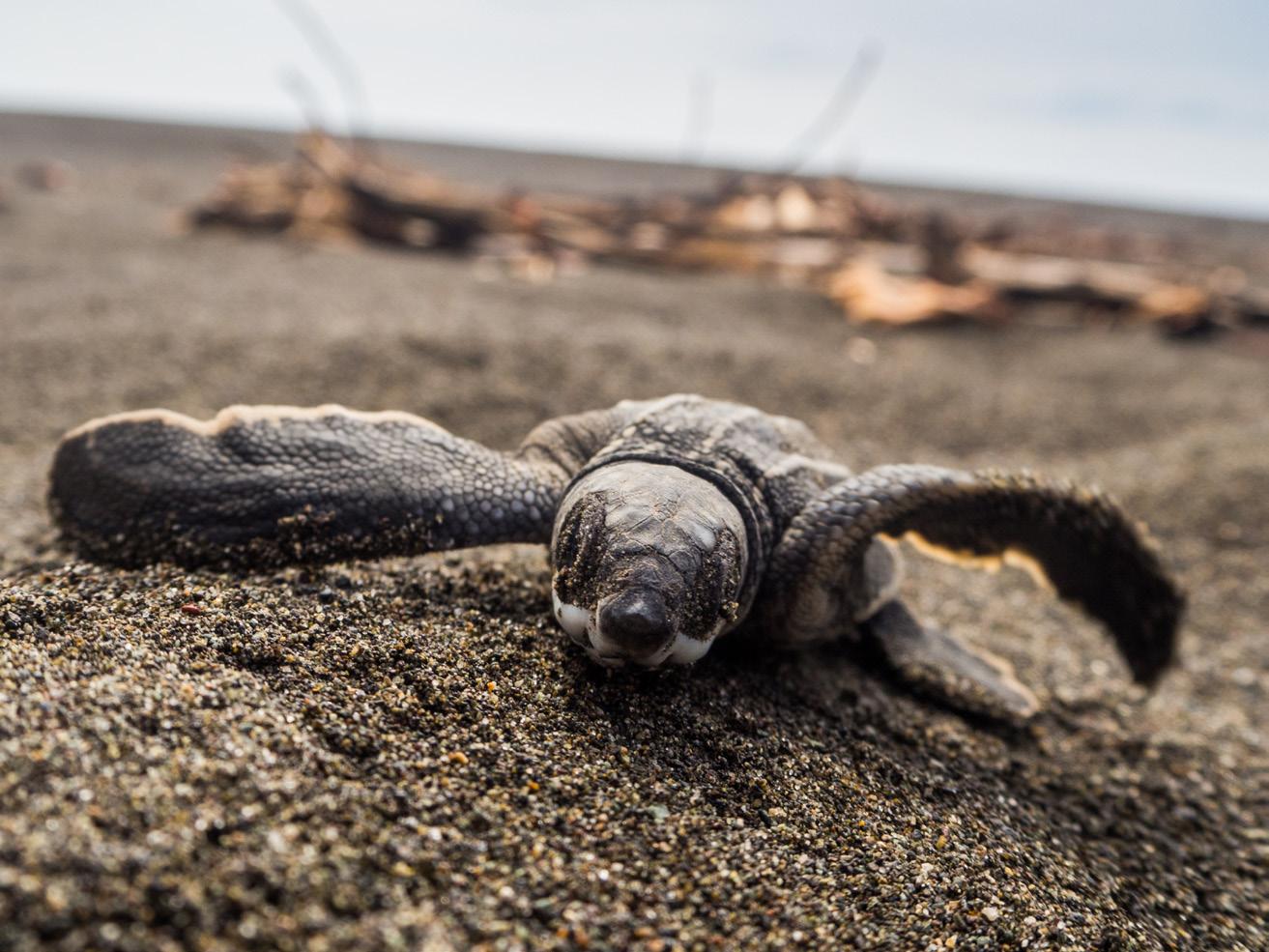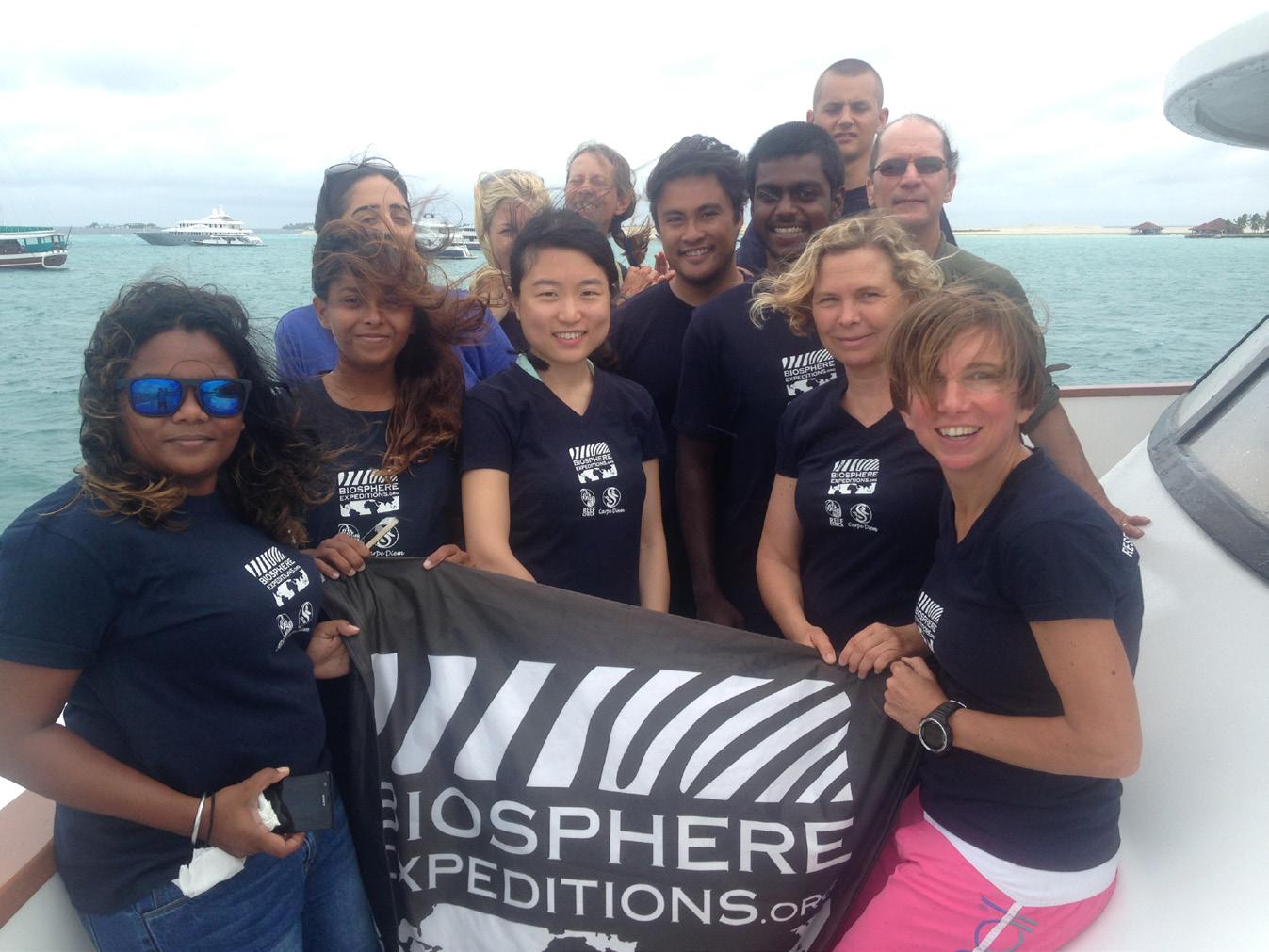GREEN LIVING

WHAT'S IN YOUR WATER?
A look at Arizona's water quality standards
Beneath the Surface
The future of Arizona's lakes
The World of Marine
Citizen Science
Biosphere Expeditions celebrates 25 years of wildlife conservation




A look at Arizona's water quality standards
Beneath the Surface
The future of Arizona's lakes
The World of Marine
Citizen Science
Biosphere Expeditions celebrates 25 years of wildlife conservation


BY MISTY MILIOTO
CCitizen science, defined as the public’s participation in scientific research, is an important tool for reaching societal goals such as environmental justice and promoting universal and equitable access to scientific data and information. In particular, marine citizen science is emerging as a promising tool to enhance conservation efforts. Moreover, citizen science has become increasingly important as a dual stream of data and funding.
Biosphere Expeditions, an international citizen science non-governmental organization (NGO) at the forefront of wildlife conservation (both terrestrial and marine), has worked in marine citizen science for decades.
“Biosphere Expeditions was founded in 1999 and is first and foremost an award-winning citizen-sciencebased wildlife conservation nonprofit,” says Dr. Matthias Hammer, executive director of Biosphere
Expeditions. “We fight for a more sustainable planet, which is under attack like never before, by empowering ordinary people to help with wildlife conservation and research through our international conservation expeditions, which unite the concepts of citizen science, ethical volunteering, and expedition holidays. There are very many tangible outcomes for wildlife and habitat conservation from the work that Biosphere Expeditions does.”
As part of its 25th anniversary this year, Biosphere Expeditions is publishing a coffee-table book that charts its history. In the meantime, here’s a look at some of the NGO’s pivotal moments over the years.
In 2021, citizen scientists with Biosphere Expeditions recorded a female sperm whale that made the Azores its home for more than 34 years. This discovery set an observation record in the Atlantic Ocean and possibly the world.
In Costa Rica, where turtle poaching is rampant, Biosphere Expeditions has reduced the threat thanks to marine citizen science. For example, during the 2017 nesting season, citizen scientists patrolled the beaches and protected turtle nests from poaching, thereby saving an average of 75 percent of turtle nests across four species.
Islands, Honduras, with managing and protecting the area’s coral reefs.

The nonprofit’s first marine conservation project, which took place from 2006 to 2011, assisted the Cayos Cochinos Marine Protected Area in Bay
Coral reef expeditions to Tioman Island provided vital data on coral reef health and human-induced threats within the Tioman archipelago. This data, which was previously unavailable, helped to build a long-term program to increase social and ecological resilience on the island.

Biosphere Expeditions surveyed a coral reef site in the Maldives called Rasdhoo Madivaru from 2010 to 2019, when the Maldivian authorities eventually declared the site a marine protected area. The reef is resilient to the worst effects of coral bleaching, and it harbors large marine animals such as sharks, manta rays, turtles, and Napoleon wrasse. Additionally, Biosphere Expeditions — along with the Marine Conservation Society, Reef Check, LaMer, Carpe Diem Maldives and the Rufford Foundation — created a local program, training Maldivians on reef surveying techniques. As a result, community-based surveys took place in Velassaru and Dhigurah, as well as community education efforts that included a children’s booklet explaining how climate change and other factors
affect marine ecosystems, and scholarships for Biosphere Expeditions’ coral reef and whale shark study that took place in 2011.
In Oman, Biosphere Expeditions’ citizen scientists gathered data for five years before ministerial decree banned fishing in two secluded bays in the Musandam peninsula and declared them marine protected areas. Biosphere Expeditions also ran an education and empowerment program that resulted in community-based reef surveys and the creation of Oman’s first reef protection nongovernmental organization. During the surveys, citizen scientists found that corals in Oman thrive in extreme conditions (such as high temperatures and salinity) — a discovery that could hold a key to coral survival in the face of global warming.

wildlife, and local communities.”
GET INVOLVED
Biosphere Expeditions runs nearly a dozen expeditions each year, three or four of which (the number varies each year) are marine science projects. For example, upcoming marine conservation volunteer projects include a seven-day diving expedition (Oct. 5-11) to study coral reefs and whale sharks in the Maldives. And in 2025, Biosphere Expeditions is offering a 10day trip (Mar. 29-Apr. 7) to the Azores in Portugal to survey whales, dolphins, and turtles.
“We are [also] actively working on setting up a coral reef project in Oman at the moment,” Dr. Hammer says.
“The benefit of marine citizen science is evident in these figures and achievements from our expeditions around the world,” Dr. Hammer says. “The work of our citizen scientists has been paramount to research, conservation, education, and empowerment in a showcase of citizen science’s democratizing effect and creating win-win-win situations for nature,
Additionally, Biosphere Expeditions created a local placement program in 2012 that hosts students, NGO and government employees, and committed individuals on expeditions. Since the program began, more than 100 locals (in various locations) have participated — resulting in community-based conservation and education programs, the creation of local conservation NGOs, career changes, and employment in conservation jobs.

